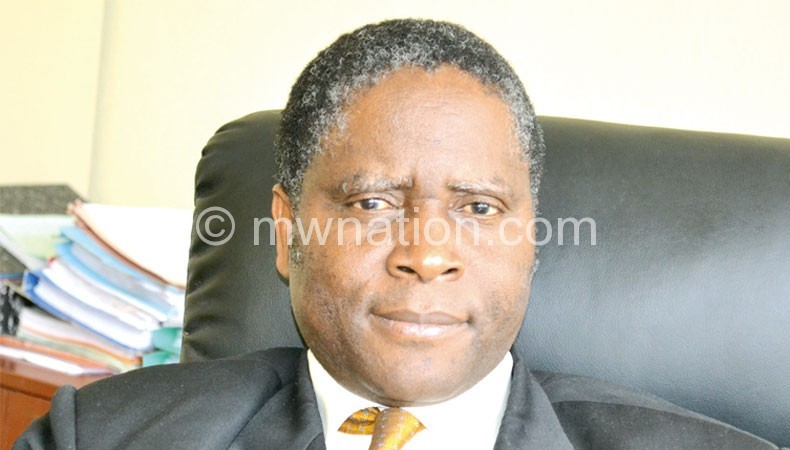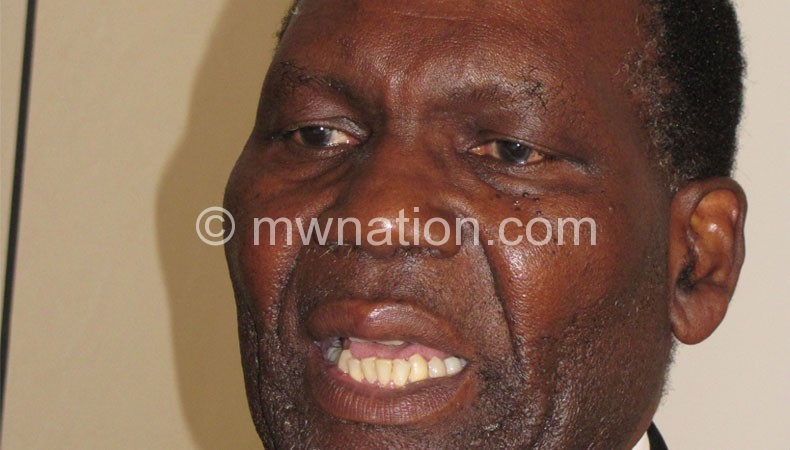Suspicious transactions rock Malawi Police

The National Audit Office (NAO) has named 54 firms it says received about K6.3 billion in suspicious payments from the Malawi Police Service (MPS) as part of the K92 billion Bingu wa Mutharika-era Cashgate.
The names are contained in ‘Appendix C’ of the investigative audit report of the Integrated Financial Management and Information System (Ifmis) that NAO conducted between November 2011 and the first half of 2012. The audit covered the years 2009-2012 when the Democratic Progressive Party (DPP) was in power.
‘Appendix C’—titled Malawi Police Service Central Payment System July 2010 to September 2011: Payments for purchases without [Internal Procurement Committee] IPC authority—outlines the company names and payouts totalling K6.3 billion for supplies whose need to the police could not be ascertained.
Some of the notable transactions whose value for money NAO could not ascertain include 17 payments to an electrical firm amounting to K1.8 billion; nine payments to another company worth about K1.2 billion; two payments of K150 million to a security equipment supplier; six payments of K123 million to a pharmaceutical firm belonging to a well-known DPP sympathiser and financier.
An analysis of the company names shows that most of the firms appearing in the Mutharika-era audit report are also featuring in the Cashgate investigations conducted since September last year. In both cases, civil servants appear to have connived with companies to abuse Ifmis.

Nation on Sunday was yet to see annexes containing names of companies that may have been involved in the disappearance of money in other ministries, departments and agencies other than police.
But according to the audit, the bulk of the K92 billion looting took place at the ministries of Agriculture headquarters (K23.3 billion), Health headquarters (K22.2 billion) Land and Housing headquarters (K3.1 billion), Disability (K 1.3 billion), Local Government (K3.1 billion), Gender and Children Welfare (K934 million) and Labour headquarters (K365) million.
Auditor General Stephenson Kamphasa presented the audit to the Public Accounts Committee of Parliament (PAC) on Thursday, but without names of those involved.
The report—which was first revealed by The Nation in October last year—details how the money was allegedly lost or mismanaged through seven irregularities involving specific financial transactions.
The seven irregularities are: (1) payments that NAO suspects were done “deliberately”—not for emergency reasons or technical faults as some officers claimed—outside Ifmis; (2) those without vouchers (3); those not supported with liquidation documents (4); payments made to banks without details of beneficiaries; (5) payments for purchases without Internal Procurement Committee (IPC) authority; (6) payments to suppliers for goods without evidence of delivery and (7) payments for fuel without evidence of delivery.
Of the seven irregular payments, it is the issuance of cheques without vouchers that deprived taxpayers the most, with K57 billion allegedly pilfered through this.
Under this loophole, the audit report says, at the ministries or departments operating under the main site of the Accountant General and the independent site of the Malawi Police Service (MPS), K57 022 444 946.38 was paid, but the related vouchers were not produced for audit review.
The second source of drain involved payments outside the Central Payment System (CPS), otherwise known as Ifmis, through which about K12.6 billion was lost or misused.

About K3.6 billion was also either lost or mismanaged through payments to individuals on behalf of other people without the acquitted signature list of the payees, says the report.
It also reveals that around K2.9 billion was lost or mismanaged, especially at MPS, through payments to banks without details of beneficiaries and the purpose of the payment.
Money amounting to K6.3 billion was lost or mismanaged through payments for purchases done without IPC approval, again, especially at MPS between July 2010 and September 2011.
The report also discloses that up to K5.8 billion disappeared through various payments to suppliers for goods that had no documentary evidence that they were delivered.
Lastly, more than K753 million was squandered through numerous payments to suppliers for fuel which had no documentary evidence that it was delivered.
The Ministry of Finance commissioned the audit after suspecting fraud in Ifmis, according to the background note in the report.
The probe coincided with the discovery in late 2011 of K400 million in a bank account belonging to a civil servant working for the Accountant General’s Department (AGD).
However, the DPP administration systematically discontinued the exercise before 14 more government departments/ministries were probed, suggesting that the plundered K92 billion could be small change compared to what may be the loss if the agencies that escaped the probe were factored in.
The 14 unaudited departments/ministries were: the Office of the President and Cabinet (OPC); Ministry of Finance (Treasury and Accountant General)—both of which are currently competing for the highest number of Cashgate villains—the Office of the Vice-President; Ministry of Information; Ministry of Defence; Malawi Defence Force (MDF); Ministry of Home Affairs; Ministry of Transport and Public Works; Ministry of Energy and Natural Resources; Ministry of Justice; National Assembly; Department of Human Resource Management and Development; Ministry of Foreign Affairs and the National Local Government Finance Committee (NLGFC), according to the report.
At OPC, the audit team failed to work because they were “turned back” whereas at the Ministry of Finance (Treasury and Accountant General), the investigation was not done because it was “planned to be the last to be audited”, according to the report, which is dated October 12 2012.
The remaining 12 ministries/departments were not audited due to “logistical problems”, the report says.
But ‘logistical problems’, according to reliable sources, are coded language for lack of funding motivated by a deficit of political will during the DPP era to continue with the damning audit.
What the report also does not say, according to reliable sources, is that in some of these ministries/departments, auditors were literally chased away and could not, therefore, probe.
It may not be long, however, before the nation wakes up to the biggest ‘Capital Hill job’ ever done when the ongoing investigations, including government-wide forensic audits of all ministries/departments that President Joyce Banda ordered last year on the back of Cashgate, are concluded.
The President—with the help of Britain and other donors—assembled a team of local and international experts to comb through the payment system dating back to 2006 and provide a clearer picture of the extent to which a suspected cabal of civil servants and their private sector accomplices have bled into a comma Malawian taxpayers, half of whom cannot afford three meals a day.
The forensic audit report released a few weeks ago by British firm Baker Tilley—that discovered that around K13 billion (US$3 194 103.19) may have been lost—only covered April-September 2013.
When Kamphasa presented the report before PAC, DPP members dismissed it as flawed and inadequate.
DPP treasurer general George Chaponda, one of the stalwarts when the party was in power, dismissed the report, arguing that it did not contain full verified details of who stole and abused the money.
In an interview last week, Director of Public Prosecutions (DPP) Bruno Kalemba said the Cashgate story was incomplete without the Mutharika era Ifmis audit.
Kalemba said his office will bring to book all those who may have participated in the looting.
In fact, said Kalemba, there are some cases in court right now that emanated from that report.
“I am also aware of the investigations that are continuing in some of the cases, those investigations that require my input, like mutual legal assistance,” he said.






Malawi needs to get a grip on it’s finances. Too many hands in the pot, helping themselves to that which is not theirs. Maybe ALL finances should be audited by outside bodies? Especially those involving public money?
You are failing to deal with those already found red handed with billions in their vehicle boots.